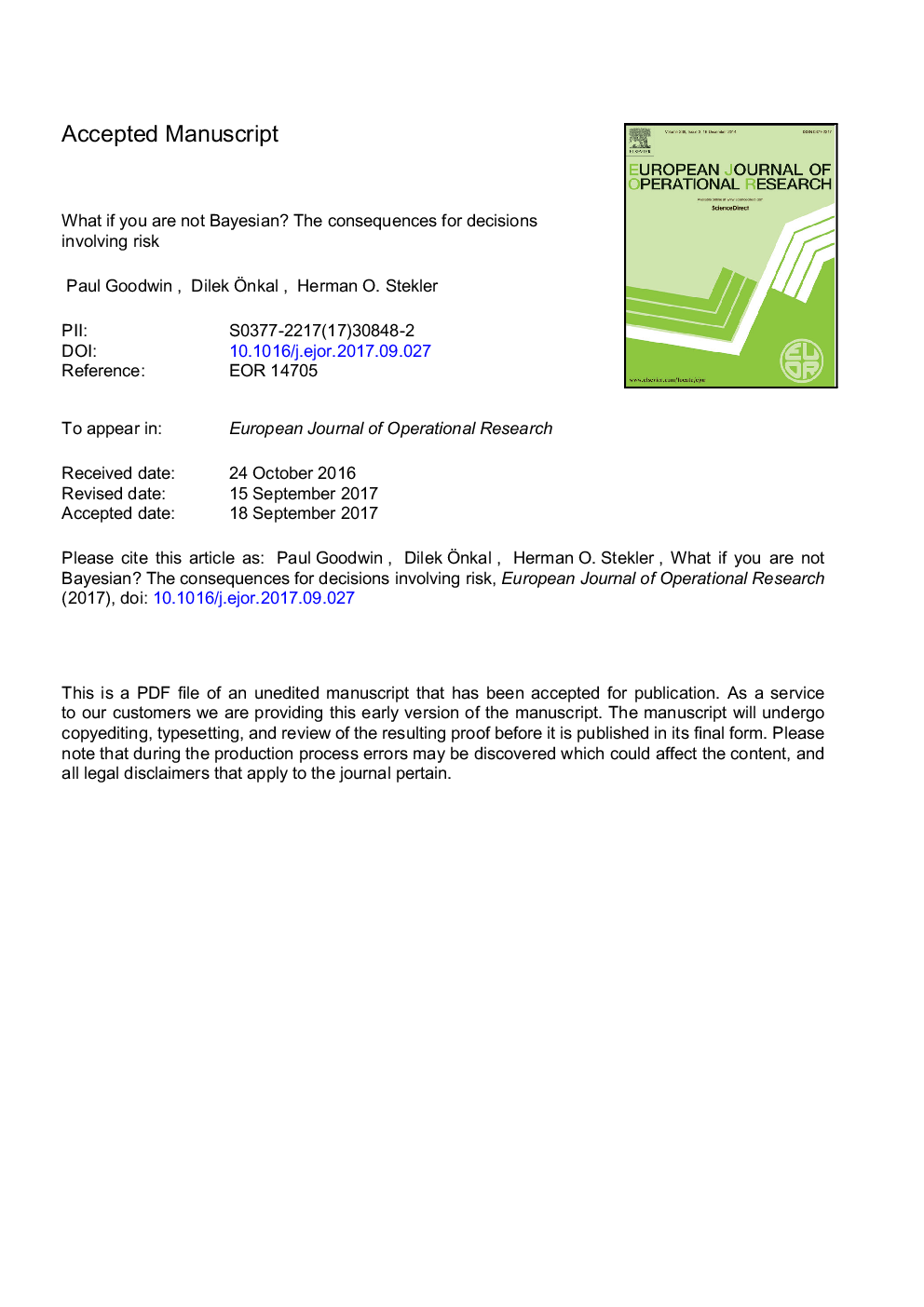| Article ID | Journal | Published Year | Pages | File Type |
|---|---|---|---|---|
| 6895230 | European Journal of Operational Research | 2018 | 35 Pages |
Abstract
Many studies have examined the extent to which individuals' probability judgments depart from Bayes' theorem when revising probability estimates in the light of new information. Generally, these studies have not considered the implications of such departures for decisions involving risk. We identify when such departures will occur in two common types of decisions. We then report on two experiments where people were asked to revise their own prior probabilities of a forthcoming economic recession in the light of new information. When the reliability of the new information was independent of the state of nature, people tended to overreact to it if their prior probability was low and underreact if it was high. When it was not independent, they tended to display conservatism. We identify the circumstances where discrepancies in decisions arising from a failure to use Bayes' theorem were most likely to occur in the decision context we examined. We found that these discrepancies were relatively rare and, typically, were not serious.
Related Topics
Physical Sciences and Engineering
Computer Science
Computer Science (General)
Authors
Paul Goodwin, Dilek Ãnkal, Herman O. Stekler,
